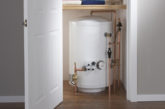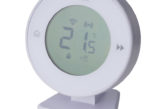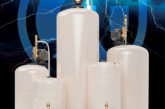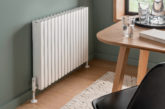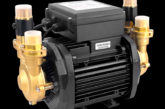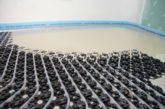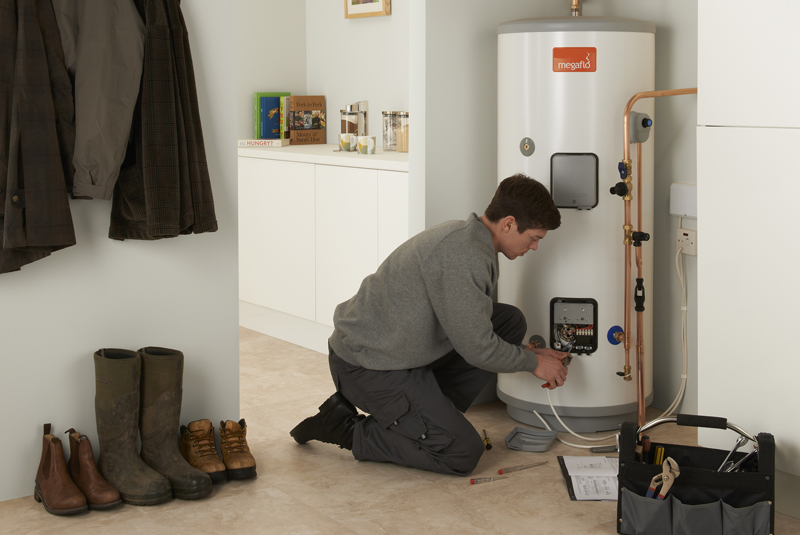
While servicing a boiler every 12 months is standard practice for engineers, the need to undertake a service every year on unvented direct and indirect cylinders can be overlooked. George Linder, Product Manager at Heatrae Sadia, offers his tips on best practice servicing.
The servicing of hot water cylinders can sometimes be disregarded by installers and consumers alike. With a yearly service increasingly becoming a condition of the manufacturer warranty, it’s important that heating engineers know what a cylinder service entails and how they can educate consumers on why it is just as necessary as a boiler service.
The first steps
There are several steps an engineer must take when servicing a cylinder. Firstly, but too often overlooked, they should have the manufacturer’s instructions to hand; these are readily available online and will prove indispensable on a job. The engineer should then discuss with the homeowner if they have noticed anything out of the ordinary with the cylinder, such as whether it has been leaking – this will immediately alert them to something being wrong.
The next step might seem simple, but visually checking over the cylinder is a sure-fire way to spot any defects that may be inhibiting its performance.
Identify, clean and check
It is the responsibility of the heating engineer to check and service the expansion vessel. Cylinders, such as the Megaflo Eco with its internal floating baffle expansion system, should be partially drained according to the manufacturer’s instructions and then refilled.
For cylinder systems such as the Megaflo Eco Plus – with its external expansion vessel – the mains supply should be closed and a hot tap opened to depressurise the cylinder. The pressure should then be checked and recharged according to manufacturer guidelines. Once complete, the installer is free to reopen the mains water supply.
Any interlocks with external controls, like an external heating programmer, should be checked by the engineer to ensure they are working effectively. Once this has been proven, it’s time to move on to check the thermostat is still operating at optimum level. Doing this is simple: with the appliance hot, check the outlet temperature at the tap closest to the cylinder – unless that outlet is a mixer shower, as this will reduce the temperature of the water below that of the storage temperature, providing an inaccurate reading.
There are a number of additional important checks the service engineer should carry out:
*Check the condition of the seals
*Check whether the temperature and pressure relief valve and expansion valves are working
*Check that there are no blockages in the tundish drain
*If the cylinder has an anode, this should be checked and replaced (if necessary)
*Where flexible hoses are used, their condition should be considered
Be a bright spark
Electrics are not just the remit of electricians anymore; gas engineers are increasingly having to work with, and repair, electrical components. For instance, while servicing the cylinder, the engineer will be required to check the condition of the electrical housing and replace it, if it shows signs of fault or damage. The cylinder’s wiring will also need to be thoroughly assessed to ensure it does not pose a risk to the appliances or to the homeowner.
The service doesn’t end with the practical assessment of the cylinder; installers should also take the time to complete the Benchmark service record and sit down and talk with the homeowner about the work they have done. This boosts confidence in the engineer’s work and brings peace of mind to the customer.
Best-practice is to advise the homeowner of the need to continue having their cylinder serviced every 12 months. Helping to make the lives of service engineers easier, Megaflo Rewards members receive free annual service alerts for two years on each cylinder registered, giving them one less thing to worry about in their busy schedules.
For those penny-conscious consumers, reminding them an annual service is often a stipulation of the manufacturers’ warranty will usually be enough – particularly if they’re looking to avoid a costly repair bill should anything go wrong in the future.
The Hot Water Association has released its own free-to-download guide to servicing, which installers can share with their customers to educate them on the standards they should expect from their engineer and why an annual service is necessary.


